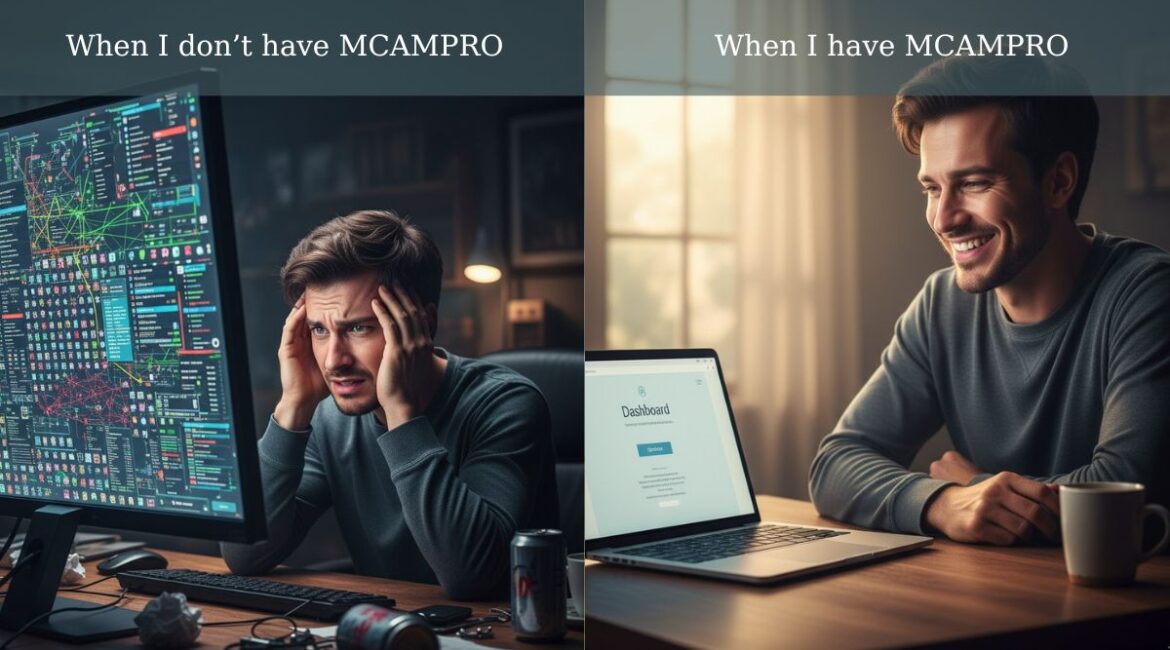You’ve made the decision. You’re ready to package your expertise into an online course. You start researching “how to sell courses on WordPress,” and immediately, you’re hit with a wall of acronyms and brand names: LearnDash, LifterLMS, LearnPress…
These are powerful, feature-rich Learning Management Systems (LMS). They can help you build a full-fledged online university, complete with complex quizzes, student assignments, and detailed reporting.
And for many solo experts, bloggers, and small business owners, they are complete overkill.
It’s like buying a semi-truck to go grocery shopping. Yes, it can do the job, but it’s expensive, hard to park, and comes with a thousand buttons you’ll never need to press.
What if there’s a better way? A smarter, more agile approach designed specifically for creators like you? In this article, we’ll explore why a “lightweight” solution is often the superior choice for launching and scaling your digital product business.
What is a “Heavyweight” LMS?
A traditional, heavyweight LMS is a plugin that tries to do everything. It typically includes:
- Advanced quizzing and grading systems.
- Assignment submissions and instructor feedback portals.
- Complex content dripping schedules.
- Detailed, per-student analytics and reporting.
- Integration with SCORM and other e-learning standards.
These features are essential for a school or a large corporate training department. But for a blogger selling their first mini-course? They often lead to “feature fatigue” and unnecessary complexity.
The Hidden Costs of a Heavyweight LMS
- The Learning Curve Cost: Your most valuable asset is time. A complex LMS requires weeks of learning just to navigate its settings. That’s time you could have spent creating content or marketing your product.
- The Performance Cost: More features mean more code. Heavyweight LMS plugins can significantly slow down your website, leading to a poor user experience and negatively impacting your SEO.
- The Financial Cost: These plugins often come with a high price tag and require expensive add-ons for essential functionalities, forcing you into a costly ecosystem before you’ve even validated your idea.
The “Lightweight” Philosophy: Focus on What Matters
A lightweight solution takes the opposite approach. It doesn’t try to be an entire university. It focuses on doing one thing exceptionally well: helping you sell your content and manage access, simply and effectively.
This philosophy is built for creators who value:
- Speed to Market: Launching your course in days, not months.
- Simplicity: Working within the familiar WordPress environment you already know.
- Performance: Keeping your website fast and lean.
- Profitability: Focusing on the core features that directly lead to sales.
When is a Lightweight Solution the Smarter Choice?
Ask yourself these questions:
- Is your primary goal to sell access to your content (posts, videos, PDFs)?
- Do you value a simple, intuitive setup over complex academic features?
- Are you a solo creator or small team who needs to launch and test ideas quickly?
- Is your course based on delivering high-quality content rather than complex assessments?
If you answered “yes” to most of these, a lightweight solution is almost certainly the right fit for you.
Introducing the Best of Both Worlds: My Course Access Manager
We built My Course Access Manager to embody the lightweight philosophy while still providing the powerful tools you need to build a real business.
It’s not a bloated LMS. It’s a laser-focused content monetization engine.
- You work with what you know: Your lessons are simply WordPress Posts. Your courses are Categories.
- You build beautiful sales pages visually: Our Course Template Builder lets you create high-converting sales pages without touching a line of code.
- You sell how you want: Sell individual mini-courses or build recurring revenue with VIP memberships.
- It’s fast and lean: We’ve included only the essential features to keep your site running at peak performance.
Conclusion
Choosing your tech stack is a critical decision. While heavyweight LMS plugins have their place, they often introduce unnecessary complexity and cost for independent creators.
By adopting a lightweight approach, you can focus your energy on what you do best: creating amazing content and serving your audience. You can launch faster, validate your ideas with less risk, and build a more profitable, less stressful online business.
Have you ever felt overwhelmed by a complex plugin? Share your experience in the comments!
